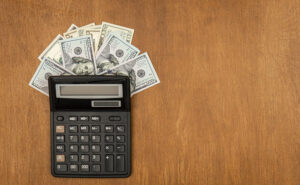Why Separating Business and Personal Expenses Matters
- Maximizing Deductions: Clearly identifying business expenses lets you claim eligible deductions, reducing your taxable income.
- Accurate Recordkeeping: Organized records make tax filing easier and protect you in case of an audit.
- Professional Image: Keeping finances separate shows professionalism and can help build credibility with clients and investors.
Quick Tip: Open a separate business bank account for all business transactions. It simplifies recordkeeping and reinforces that line between business and personal.
What Counts as a Business Expense?
1. Operating Expenses
- Rent for an office or workspace.
- Utilities directly related to the business.
- Office supplies and equipment, like computers and printers.
2. Advertising and Marketing
- Costs for promoting your business, including social media ads, website hosting, and branding.
3. Professional Fees
- Payments to accountants, consultants, or lawyers who provide business services.
4. Travel and Meals
- Business travel expenses like flights, hotels, and car rentals.
- Meals while traveling for business (deductible at 50%).
Quick Tip: Using accounting software or consulting a tax pro can help you categorize expenses accurately and avoid claiming personal items as business deductions.
What’s Considered a Personal Expense?
- Housing: Rent or mortgage payments for your home, unless you’re eligible for the home office deduction.
- Personal Living Costs: Groceries, clothing, and entertainment expenses.
- Non-Business Vehicle Expenses: Personal vehicle use that isn’t for business.
Mixed-Use Expenses: When It’s Both Business and Personal
Home Office Deduction
- If you work from home, you might qualify for a home office deduction. To qualify, the space must be used exclusively and regularly for business.
- You can calculate this deduction using either the simplified method (based on square footage) or the actual expenses method (a percentage of total household costs).
Vehicle Expenses
- If you use your vehicle for business, you can deduct either actual expenses (fuel, maintenance) or take a standard mileage deduction.
- Keep a mileage log for business trips. Apps can make tracking and keeping records easier.
Quick Tip: Both methods require detailed records. Working with a tax pro can help you maximize your deduction and pick the method that best suits your finances.
Staying Organized Year-Round
- Separate Bank Accounts: Keep all business transactions in one account to simplify tracking.
- Use Accounting Software: Tools like QuickBooks or Xero help you track and categorize expenses efficiently.
- Save Receipts: Keep receipts for all business-related expenses, large or small. Cloud storage apps help organize receipts by date or category.
- Monthly Expense Reviews: Set aside time each month to review expenses, so you’re ready for tax season.
Wrapping Up
Knowing the difference between business and personal expenses is key to managing your business finances and staying compliant with tax regulations. By separating finances, tracking expenses, and keeping organized records, you’ll be better prepared for tax season and more likely to maximize your deductions.
Want to make managing your expenses easier? Schedule a consultation with DownieTax. We’ll help you structure your finances, organize records, and make the most of mixed-use expenses, so you can focus on growing your business with confidence.








